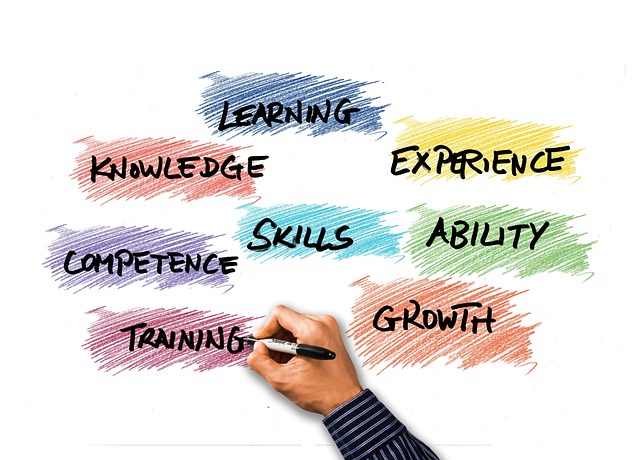Sales skills are the foundation of any successful career in sales. Whether you’re a seasoned professional or starting, understanding the distinction between soft and hard sales skills can help you attain your goals. While hard sales skills focus on technical knowledge, product expertise, and strategic selling techniques, soft sales skills—such as communication, emotional intelligence, and relationship-building—help establish trust and influence buyers.
This article will explore the differences between these two skill sets, their roles in the sales process, and why mastering both is key to long-term success.
What Are Soft Sales Skills?
Soft sales skills are the interpersonal and emotional intelligence abilities that allow sales professionals to connect with clients on a human level. These skills are often intangible and difficult to quantify, but they are integral to building trust, forming relationships, and creating a positive sales experience. Some of the most important ones include:
Communication Skills
Effective communication is at the heart of soft skills. This involves speaking clearly and persuasively and actively listening to clients. By understanding their needs, concerns, and preferences, salespeople can adjust their approach to resonate with each individual.
Empathy
Empathy allows salespeople to put themselves in their clients’ shoes. By understanding the emotions and motivations behind a client’s decisions, sales professionals can build stronger connections and offer solutions that genuinely address their needs.
Emotional Intelligence
Emotional intelligence is the ability to recognize and manage one’s own emotions while also understanding and influencing the feelings of others. In sales, this skill helps navigate difficult conversations, handle objections, and maintain a positive attitude even in challenging situations.
Adaptability
The ability to adapt to different personalities, situations, and environments is crucial in sales. Clients come from diverse backgrounds and have unique preferences, so being flexible and open-minded can make a significant difference in closing deals.
Relationship Building
Sales is not just about making a one-time sale; it’s also about fostering long-term relationships. Soft sales skills like trust-building, follow-up, and maintaining genuine connections can lead to repeat business and referrals.
Exploring Hard Sales Skills
These technical and measurable abilities directly contribute to the sales process. Such skills are usually easier to teach and quantify, making them a focal point in many sales training programs.
Product Knowledge
A deep understanding of the product or service being sold is a must. This includes explaining features, benefits, and value propositions clearly and confidently to potential clients.
Negotiation Skills
Negotiation is a vital component of the sales process. Hard sales skills in this area include understanding pricing strategies, identifying win-win solutions, and closing deals effectively.
Data Analysis
Analyzing sales metrics and customer data is invaluable nowadays. Hard sales skills in this area involve using tools and software to track performance, identify trends, and make decisions.
Time Management
Sales professionals often juggle multiple clients and tasks simultaneously. Effective time management ensures priorities are met, deadlines are fulfilled, and opportunities aren’t missed.
Technical Proficiency
With the rise of digital tools and platforms, technical proficiency has become a must-have hard sales skill. This includes familiarity with customer relationship management (CRM) systems, social media platforms, and other sales technologies.
The Importance of Balancing Both
While the two skills are important, relying too heavily on one type can lead to imbalances that hinder success. For example, a salesperson with excellent technical knowledge but poor communication skills may struggle to connect with clients. Conversely, someone with strong interpersonal skills but limited product knowledge may fail to close deals effectively.
Why Soft Sales Skills Matter
In a time when customers value authenticity and personalized experiences, these skills can set a sales professional apart from the competition. They help create a positive impression, build loyalty, and encourage clients to return for future purchases.
Why Hard Sales Skills Matter
Hard sales skills ensure that sales professionals can deliver accurate information, meet targets, and navigate the technical aspects of the sales process. Without these skills, even the most charismatic salesperson may struggle to achieve consistent success.
Strategies for Striking the Perfect Balance
The right balance between soft and hard sales skills entails intentional effort and continuous improvement. Here are some ways to make it happen:
Tip #1: Invest in Training and Development
Sales training programs should cover both skills. Role-playing exercises can help improve communication and empathy, while workshops on data analysis can boost technical proficiency.
Tip #2: Seek Feedback
Regular feedback from clients, colleagues, and supervisors can provide valuable insights into areas for improvement. This feedback can help identify whether a sales professional must focus more on soft or hard skills.
Tip #3: Practice Active Listening
Active listening is a soft skill that can enhance hard skills like product knowledge and negotiation. By truly understanding a client’s needs, sales professionals can tailor their approach and offer more relevant solutions.
Tip #4: Leverage Technology
CRM systems and other sales tools can streamline hard skills like data analysis and time management. At the same time, these tools can also support soft skills by providing insights into client preferences and behaviors.
Tip #5: Focus on Continuous Learning
The sales industry is constantly evolving, and so are the skills required to succeed. Sales professionals should commit to lifelong learning, staying updated on industry trends, and refining both soft and hard skills.
Real-World Examples
Example 1: The Consultative Sales Approach
A consultative sales approach combines soft skills like empathy and communication with hard skills like product knowledge and data analysis. Sales professionals can identify pain points and offer personalized solutions by asking thoughtful questions and actively listening to clients. This approach not only builds trust but also demonstrates expertise.
Example 2: Leveraging CRM Tools
A salesperson using a CRM tool to track client interactions and preferences is applying hard skills. However, using this data to personalize follow-up messages and anticipate client needs, they also demonstrate soft skills like relationship building and adaptability.
Example 3: Handling Objections
When a client raises an objection, a sales professional with strong hard skills can provide data-driven responses to address concerns. At the same time, soft skills like emotional intelligence and empathy can help navigate the conversation with tact and understanding, ultimately leading to a positive outcome.
The Role of Emotional Intelligence in Balancing Skills
Emotional intelligence allows you to recognize when to emphasize technical expertise and when to focus on building rapport. For instance, during a high-stakes negotiation, emotional intelligence can help a salesperson remain calm and composed, using hard skills to present facts while employing soft skills to maintain a collaborative tone.
The Impact of Industry and Client Type
The ideal balance between soft and hard sales skills can vary depending on the industry and type of client. Hard skills may take precedence in sectors like technology or finance, where complex products and services are involved. Conversely, in sectors like retail or hospitality, soft skills may play a larger role in creating memorable customer experiences.
Similarly, the type of client can influence the balance. For example, a corporate client may prioritize data-driven insights and technical expertise, while an individual consumer may value personalized interactions and emotional connection.
Measuring Success: Key Performance Indicators (KPIs)
Tracking these KPIs ensures the balance between soft and hard sales skills is effective:
Conversion Rates
A measure of how effectively soft and hard skills are combined to close deals.
Customer Satisfaction Scores
An indicator of how well soft skills are fully utilized to build relationships.
Sales Growth
A reflection of the impact of balanced skills on revenue generation.
Client Retention Rates
A metric highlighting the outcome of long-term relationship building.
Common Pitfalls to Avoid
Mistake #1: Overemphasizing Hard Skills
Focusing solely on technical expertise can lead to a transactional approach that alienates clients. Sales professionals must remember that people buy from those they trust and like.
Mistake #2: Neglecting Hard Skills
Relying too much on soft skills without backing them up with solid product knowledge or data-driven insights can undermine credibility.
Mistake #3: Failing to Adapt
The sales industry is constantly changing; what works for one client or industry may not work for another. Sales professionals must remain flexible and open to refining their skill set.
Mistake #4: Ignoring Feedback
Feedback is necessary for growth. Ignoring constructive criticism can prevent sales professionals from identifying areas where their skills may be out of balance.
Final Thoughts
Ultimately, balancing soft and hard skills is all about recognizing the intrinsic value of each type and continuously working to integrate them into a cohesive and effective sales strategy. By striking the perfect balance between these two skill sets, sales professionals can differentiate themselves and excel in their careers. Whether through training, feedback, or practice, mastering soft and hard sales skills promises personal and professional growth.
Get Better at Sales
Black Diamond Management can help you hone your customer relationship management skills and sharpen your technical expertise to close more deals. Our coaching programs focus on enhancing soft and hard sales skills, ensuring you can build strong relationships, communicate persuasively, and secure lucrative sales job opportunities down the line.
Whether you want to improve your negotiation tactics, refine your pitch, or develop stronger client rapport, we provide the tools and insights you need to succeed.

